We understand you have plenty to worry about these days — the health and wellbeing of your family, the uncertainty of the economy…the list goes on.
Chances are, one of the last things you want to think about is oral health. If it’s not a glaring everyday issue, this can be easy to overlook.
But at Premier Orthodontics, we believe in preventative medicine and treatments. We’ve seen firsthand the benefits that families can reap and the money they can save when they make a small adjustment to their routine to focus on their oral health.
That’s why we provide our patients with guides on common dental issues and ways you can prevent them.
Below we focus on an issue that’s often overlooked, but which can create long-term effects on your mind, body, and oral health: Teeth grinding, also known as bruxism.
What Causes Teeth Grinding?
When you experience stress, your body can react in many different ways. One of those ways is by tensing the jaw, which can cause you to grind your teeth.
Teeth grinding can create even more stress on your body. The side effects of bruxism include headaches, earaches, cracked or fractured teeth, and even the complete loss of permanent teeth. Pediatric bruxism may cause premature
Stress isn’t the only thing that can cause you to grind your teeth, either. Children may clench their teeth because the top and bottom teeth aren’t growing in to align properly Other kids that are hyperactive, or have other specific medical conditions or take medications may also develop bruxism.
Sometimes having an abnormal bite, where the alignment of your teeth doesn’t allow for your jaw to find a comfortable resting place, can cause your teeth to grind at night. It can also be a side effect of sleep apnea, or caused by discomfort due to sinus issues from allergies or colds.
No matter the cause, bruxism is something that’s important to treat as soon as possible in order to skip avoidable treatments that can be much pricier than the cost of prevention like fillings, crowns, or veneers.
How Can I Tell If I Grind My Teeth At Night?
You want to avoid bruxism, but how do you know if you’ve been grinding your teeth in the first place?
Your parent, sibling, or partner may hear you clenching your teeth when you’re stressed or grinding your teeth while you’re asleep. If your family hasn’t noticed it yet, you may have started to feel one or more of the side effects:
- Waking up with jaw, neck or face pain
- An increase in tooth pain or sensitivity
- Teeth becoming loose, chipped, fractured or worn
- Broken fillings
- Headache that starts in your temples
- Cuts or sores on the inside of your cheek
Bruxism that happens at night is known as sleep bruxism (SB), but it can also happen in the daytime while you’re out and about, known as awake bruxism (AB). Awake bruxism can be managed by being mindful of discontinuing the habit, or discouraging children from habitually clenching their teeth. It’s easier for older children than younger children to make this change.
If you’re experiencing any of these issues, schedule an appointment with your orthodontist to find out if you might suffer from bruxism. Our professional staff will help you with a gameplan to keep your enamel strong, your teeth intact, and your pain at bay.
How Can a Professional Help?
Dentists and orthodontists have the skills and the tools to detect issues with your teeth that you can’t detect at home. Oral health professionals can provide the quickest and most effective ways to treat and prevent your teeth grinding.
With regular dentist visits, your dentist can detect any changes in the wear of your teeth. If you have jaw, neck, or tooth pain, they will help detect its source.
If your dentist or orthodontist determines that you suffer from bruxism, there are a few different treatment options based on the cause of your teeth grinding.
You may be given a nighttime mouthguard to help cushion the area between your top and bottom teeth and eliminate the possibility of your teeth touching at night.
If your teeth grinding is caused by a misaligned bite, the treatment may involve more extensive processes like teeth shaping or reconstructing the bite with carefully-placed crowns or inlays.
The dentist will work with pediatric patients to determine if their bruxism stems from anatomical (the alignment of their teeth and jaws), stress, psychological, or child growth & development causes. They will also check for unusual wear and tear, any chipping in the teeth, or unusual sensitivity and prescribe and appropriate treatment.
What Can I Do to Prevent Teeth Grinding?
If stress is the cause of your teeth grinding, you can help prevent it at home with stress-busting practices like regular exercise, meditation, trying out a fun new hobby, or getting more outside time. If stress is an ongoing challenge in your life, you may want to seek out a therapist or counselor.
A few other things you can do to keep from grinding your teeth include:
- Cut back on caffeine
- Cut back on alcohol, which can intensify teeth grinding
- Place your tongue between your teeth if you notice the urge to grind to help train your jaw muscles to relax
- Hold a warm washcloth on your jaw near your earlobe before bed to help relax the muscles
- Avoid chewing gum, as it tightens your jaw muscles and encourages teeth grinding
If your child has bruxism, make sure to always check in with them to make sure they don’t have external stress factors going on in their life. Try relaxing activities together to also help before bedtime.
Recognizing you might have bruxism is a huge step toward relief. Try some of the at-home self-care methods above, and look for the signs that you may need to see a professional.
Know that you’re supported, and we’re here to help!
Contact us to schedule an appointment with an orthodontist >

